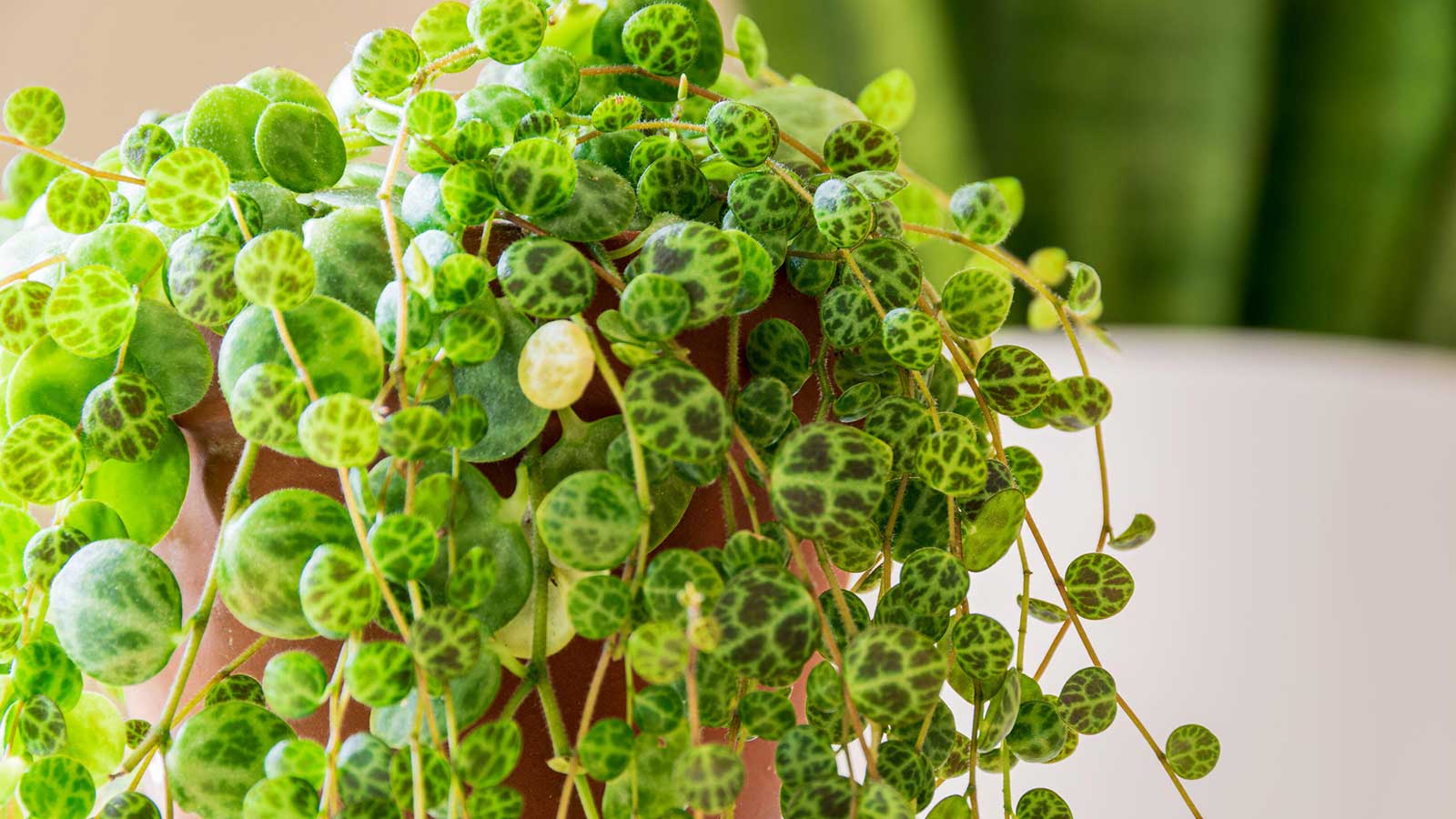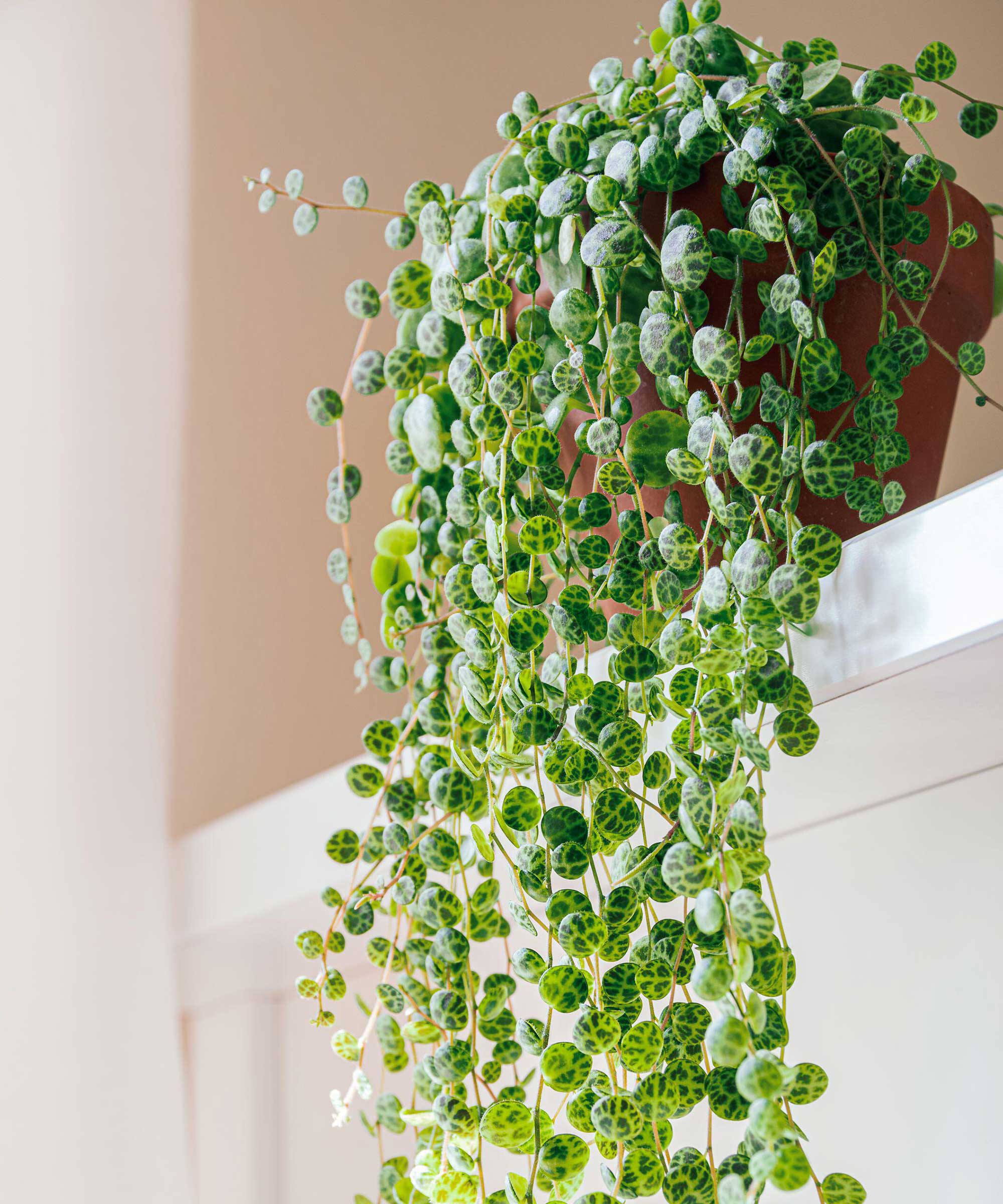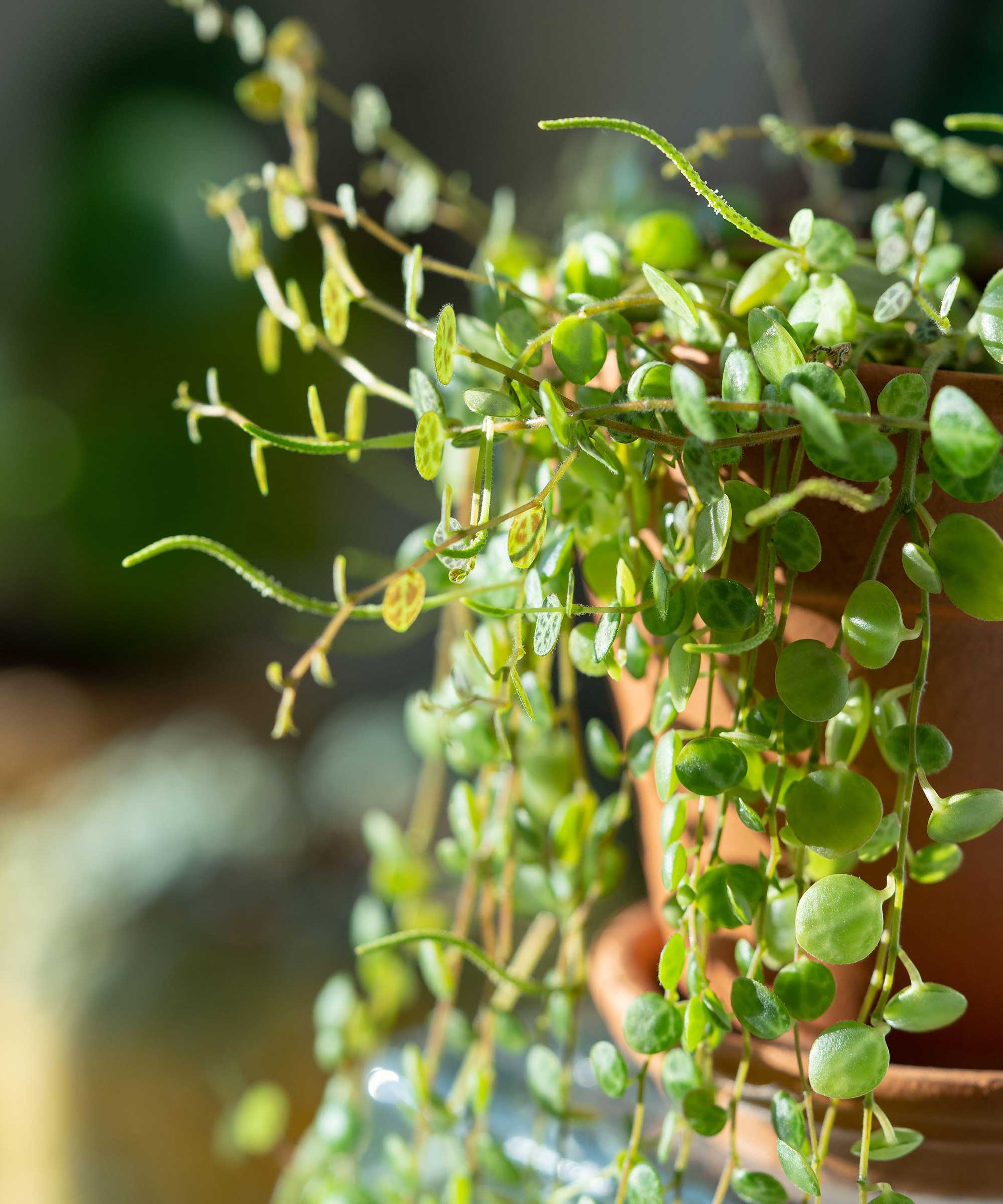
String of turtles, otherwise known as Peperomia prostrata, is a type of trailing houseplant that's perfect for a high shelf or a hanging planter. They are similar to string of pearls (Senecio rowleyanus) and string of hearts (Ceropegia woodii), but are distinguishable by the markings on their flat leaves. And they are just as simple to propagate.
All you need to do is take stem cuttings, which can then be planted in either a good-quality potting mix or into a jar of water. The whole process is incredibly quick – and roots should form in a matter of weeks – as long as you stay clear of the common houseplant propagation mistakes.

How to propagate string of turtles in soil
Autumn Hilliard-Knapp of Perfect Plants Nursery shares her simple steps for propagating a string of turtles houseplant:
- Using a sharp pair of scissors, cut a 3-4in section of the plant, just below a node. Nodes are where leaves and roots emerge from the main stem.
- Next, remove a few leaves from the lower section of the cutting, close to where you made the initial cut. This will expose some bare nodes.
- Take the stripped cutting and place it in a pot with moistened soil, ensuring that at least one node is buried beneath the surface.
- Find a spot with bright, indirect sunlight for the potted cutting and water it enough to keep the soil consistently moist, but make sure to avoid over-watering. Misting the plant and soil when they're dry should be sufficient.
- In a few weeks, you should notice root development. To check if it's rooted, give the plant a gentle tug – resistance indicates successful rooting.

How to propagate string of turtles in water
Propagating in water rather than soil is suitable for many indoor plants, string of turtles included. It's fast, there's no messy compost to clear up (at least, until the rooted cuttings need potting up), plus it's fun to watch roots develop.
- Take cuttings in the same way as above, removing the bottom leaves.
- Then, place the bottom of the stem in a jar of clean water. Avoid allowing any leaves to touch the water. If necessary, you can cover the opening of the jar with plastic wrap, then poke a hole through just for the stem – this will keep the leaves supported.
- Put the jar somewhere warm with bright but indirect light.
- Once a good root system has established, carefully plant the cutting into a pot of well-draining soil mix.
When trying this method, it's important to stay clear of the common water propagation mistakes for the best chance of success, and to change the water frequently.

When to propagate string of turtles
It's best to propagate these houseplants during their growing season, which is in the warmer months of spring or summer. This will encourage quicker rooting of the cuttings, and the parent plant will recover quicker, too.
Once you've tried propagating your string of turtles, why not have a go at propagating other plants around your home, too? From monstera to rubber plants, prayer plants to spider plants, there are multiple propagation methods that will turn your home into a jungle-like haven, for free. Plus, any extra plants make thoughtful gifts for loved ones.







